Jeremy Spencer - Interview
by Lisa Torem
published: 27 / 8 / 2012
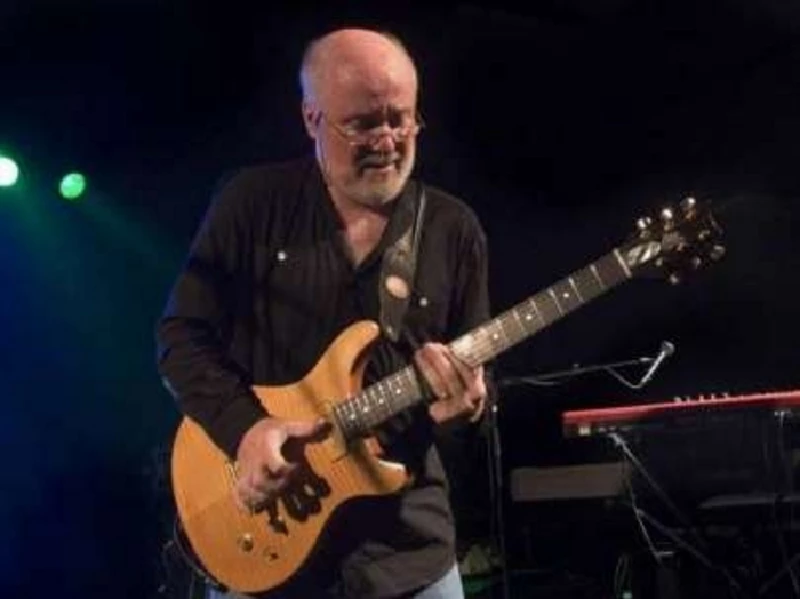
intro
One of Fleetwood Mac's first guitarists, Jeremy Spencer spoke with Lisa Torem about his years with the group, and his blues-infleunced latest album ‘Bend in the Road’
In April of this year, British guitarist, Jeremy Spencer, released ‘Bend in the Road’, on International Record Store Day. On thisdouble album, he shares the limelight with co-producer, Brett Lucas, and returns to his blues roots, with Elmore James’ tributes like ‘Cry For Me Baby’ and ‘The Sun is Shining’; flexes his instrumental muscles with ‘Whispering Fields’ and even touches on fine literature with the tune, ‘I Walked a Mile With Sorrow’, titled after a Robert Browning poem. Spencer’s legacy includes living in four continents and being one of the first Fleetwood Mac guitarists, from the summer of 1967 until the winter of 1971, after which time he became a follower of the Children of God, a group in which he is still associated. It was guitarist Peter Green, who after having broken off with John Mayall’s Bluesbreakers, had asked him to join the band’s early incarnation. They experienced musical differences when Green wanted to develop original material, while Spencer felt more motivated to play Elmore James standards. Danny Kirwan was brought in as third guitarist after they recorded their 1968 second album, ‘Mr. Wonderful’. By the time they recorded their third album ‘Then Play On’ in 1969, Spencer’s part was minimal. None of the recording activity, however, affected his dynamic onstage performances, and it was on their 1970 fourth album ‘Kiln House’ album that his talent as a mimic shone through in songs such as ‘Buddy’s Song’, a tribute to Buddy Holly. In 1998, he was inducted into the Rock and Roll Hall of Fame, and in the mid 2000s, Spencer jammed with early Fleetwood Mac members, but he has come full circle with his new album and renewed interest in the blues genre that launched his career as a virtuosic slide guitarist. Jeremy Spencer spoke with Pennyblackmusic about the early days of Fleetwood Mac, and ‘Bend in the Road’ PB: As a student you mimicked your headmasters and later you used this skill to portray artists like Buddy Holly, Elvis and John Mayall. When did you first recognize this ability in yourself and how has your natural ear served your career? JS: As a child, I noticed I could imitate voices and accents, and when I turned about eleven years old, I found I could imitate Elvis and Cliff Richard’s singing voices. This ability has served me well in obvious ways in my musical career, but has also come in handy for audio dramas and playing pranks. PB: You added a tremendous blues influence to Fleetwood Mac after joining in 1967. What was your process/procedure for interpreting Elmore James material like ‘Dust My Broom? JS: Simply, I was trying my darndest to sound exactly like him! That’s why I wore the ‘Broom’ riff bristles down to its handle on ‘Mr. Wonderful’. One of my regrets! I mean too be offered studio time like that with a team of excellent musicians and fritter it away in such a fashion is insane! What was I thinking? PB: What other artists motivated you in the same way to perform at that time and how have your influences changed at this time? JS: I was a staunch Buddy Holly adherent at that time, but no other artist drove me in the same way as Elmore. The only other musician since who has influenced my style and approach since is Mark Knopfler. When I first heard him, it made me sit up and take notice, and eventually caused me to drop the pick when playing slide. I realise he has also had a subconscious effect on my song writing. PB: When Mick Fleetwood and Peter Green invited Danny Kirwan to join Fleetwood Mac as third guitarist, did you feel threatened or relieved? JS: Neither, really. It wasn’t easy to swallow though, but I understood perfectly that Pete needed someone to support him in the direction he wanted to go, especially in recording. I already knew I had little that was new to contribute, and so I was more frustrated with myself than anything or anyone else. The situation on stage however, left me to get up, do my Elmore and Elvis bit and go home! Peter leaving definitely forced me out of my comfort zone. PB: Ultimately, you collaborated with Kirwan after Peter Green left the group. How did those working relationships compare? JS: I definitely collaborated more with Danny than I had with Pete during that time, and the musical ideas were beginning to flow – and, despite being somewhat ‘lyrically challenged’, originality was more Danny’s side of the team, but overall the material and scope between us was wider in content. Although ‘Kiln House’ flubbed in Britain, it had an amazing reception in the US, more than anything we had put out there before. I think it is because the positive musical ‘tone’ of the album offered a ray of hope to an increasingly disillusioned hippy generation. PB: On ‘Then Play On’, you were offered very little recording time. Was this because there were just too many chiefs at the time? JS: Not really, even though the album could have turned out sounding a bit directionless had I contributed. The story was that Pete asked me if I had any new stuff for the album. I didn’t, only 50’s rock and roll material and spoofs, which wouldn’t have fit in with the direction that he and Danny were going. We thought about putting my stuff on an extended play to be packaged with the album, and the idea grew to be my own full-fledged first solo album (‘Jeremy Spencer’, 1970-Ed), which flopped miserably! But I had fun doing it. Actually, in retrospect, one of the most enjoyable things was working with Danny on it, as it brought out a side of him that I hadn’t seen and it set the stage for having to work together without Pete later. PB: When Fleetwood Mac set forth to play at the Whiskey A Go Go in LA, you felt apprehensive because of the possibility of an earthquake and you also had “premonitions.” You have stated in previous interviews, that you wish you would have handled leaving the band differently, but do you feel that your concerns were understood? JS: That ‘premonition’ story must be another of those myths that have surrounded my departure from the band. Besides having occasionally speculated on the possibility of a great calamity befalling the world, the only premonition I was aware of at the time was a couple of days before that US tour in early 1971, when our roadie, Dennis Keene, said that he felt something ‘heavy’ was going to happen on that tour! As far as the earthquake is concerned, it had already happened when we touched down in LA. It is true, however, that I wish I had handled leaving the band differently. I felt bad at having left so abruptly, and over the next few years, I prayed many times for God to give them success beyond anything they had known before. He answered those prayers, and I believe He honoured their decision to not get nasty and pull contracts, legalities, and suchlike when I left. PB: After you left Fleetwood Mac, you moved to the US with your wife at the time, Fiona, and devoted yourself to the Children of God, but you continued to record and perform. How did you see your career at that point in your life? JS: I didn’t think about it much, but after a couple of record company offers and failed endeavours, I have to admit that I was at a bit of a loss seeing where I ‘fit in’ for a while, until concrete musical opportunities and need for ‘in-house’ (that is the Christian community) music arose. I was busy with that for a good many years all over the world! PB: What has been your best experience performing live? JS: Believe it or not, a recent one that left me euphoric was playing with a young French guitarist, Mick Ravassat and his Blue Team (a bass player and girl drummer) in a club in Fontainebleau, France. It was amazing. I hope and plan to do more with them. PB: You have stated in previous interviews that you come up with fresh solos whenever you perform. What is your secret? JS: Someone once said I sometimes play as if I was whistling! It’s improvisation, really, and I liken it to talking as well – especially on slow blues, knowing and feeling when to ‘speak’ and when to shut up so to ‘speak’! PB: You recorded ‘Bend in the Road’ in a Detroit suburb. Why did you choose that location and how did the sessions go? JS: Mark Grigorian, a slide aficionado friend in Detroit, recommended the team of musicians on that album who are all from there, and the guitarist, Brett Lucas, recommended the studio because of its informal vibe and its engineer, Jim Kissling. The sessions went so well, and the atmosphere was so warm and creative, that the engineer was sad at having to dismantle for his next session! I suppose that says it all. PB: Can you discuss the players on the album, and how on the tune, ‘Stranger Blues’, you collectively developed such a raw sound? JS: The players, as I said, are from Detroit, and respected musicians. Besides Brett Lucas on guitar, there is James Simonson on stand-up and electric bass and Todd Glass on drums and percussion. We recorded ‘Stranger’ and most of the bluesier numbers in one shot, with the minimum of overdubs (mostly me adding piano), which probably contributed to a raw sound. PB: The band JYNXT includes several of your kids. Are your tastes reflected in their sound? JS: No. I don’t think they were partial to the old man’s tastes at the time! Although they did ask me to overdub a slide on ‘Bring Back Tomorrow’. We recently enjoyed some impromptu jamming while visiting relatives in Italy. Some of my grandchildren were also present and it was rewarding to see how they also have inherited musical, artistic and even dramatic talent. PB: You are a well-travelled man. What has exploring the world taught you? JS: Seeing the spiritual healing power of music in such a basic form as the blues touching people from all nationalities has shown me that the heart and longings of people are the same the world over. Music seems to know no language or cultural barriers. It's an amazing gift of God when used in the right way. PB: Thank you.
Band Links:-
https://www.facebook.com/thejeremyspencerhttp://www.jeremyspencer.com/
https://twitter.com/Jeremy_Spencer_
Picture Gallery:-
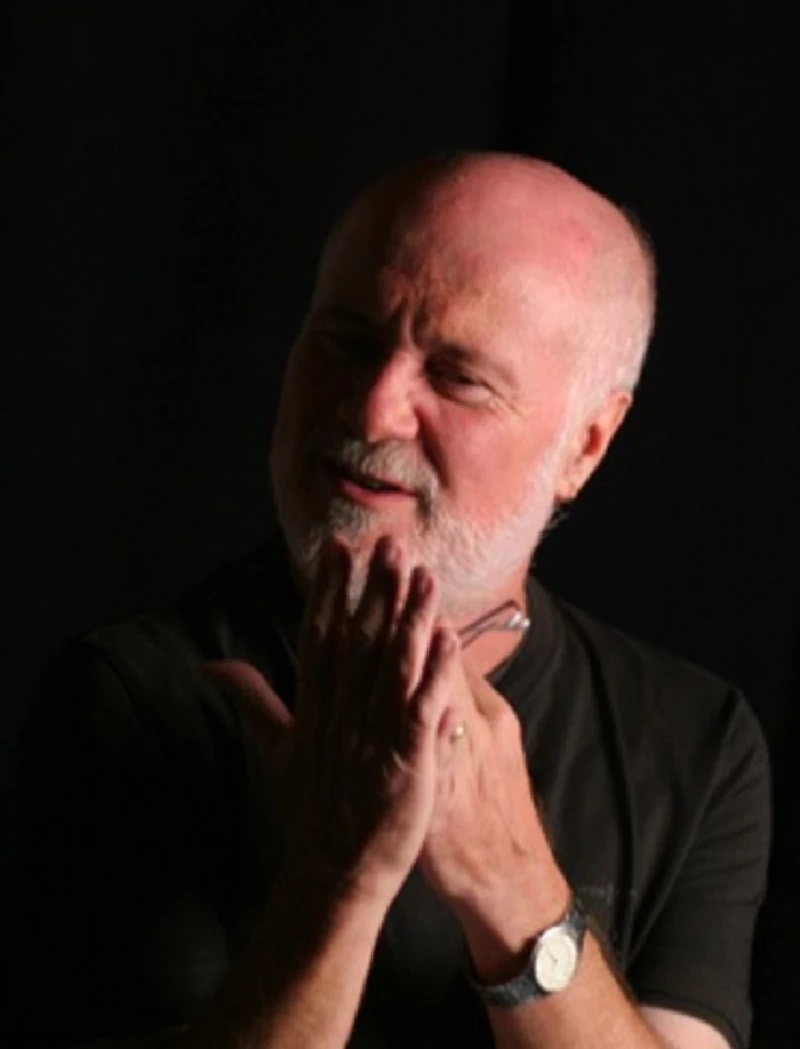
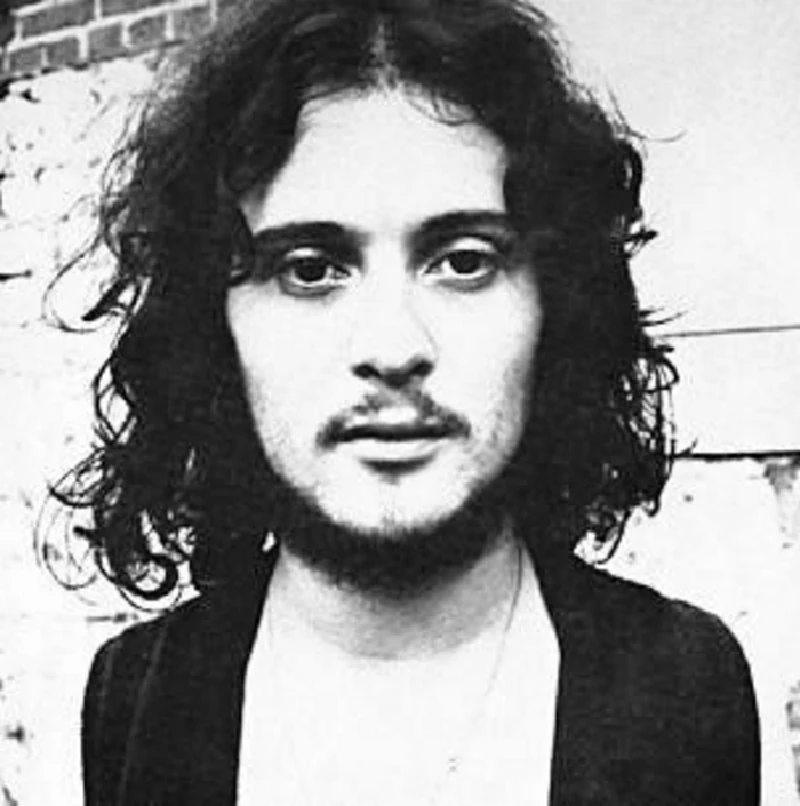
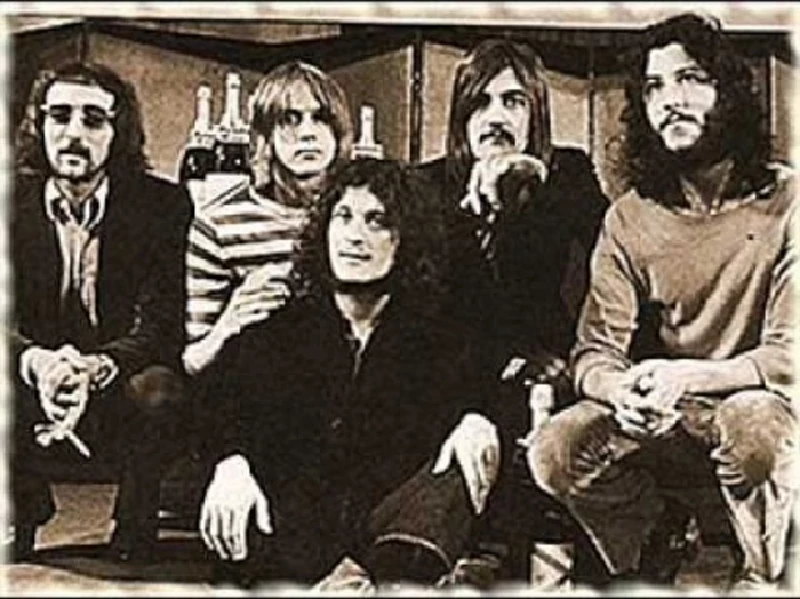
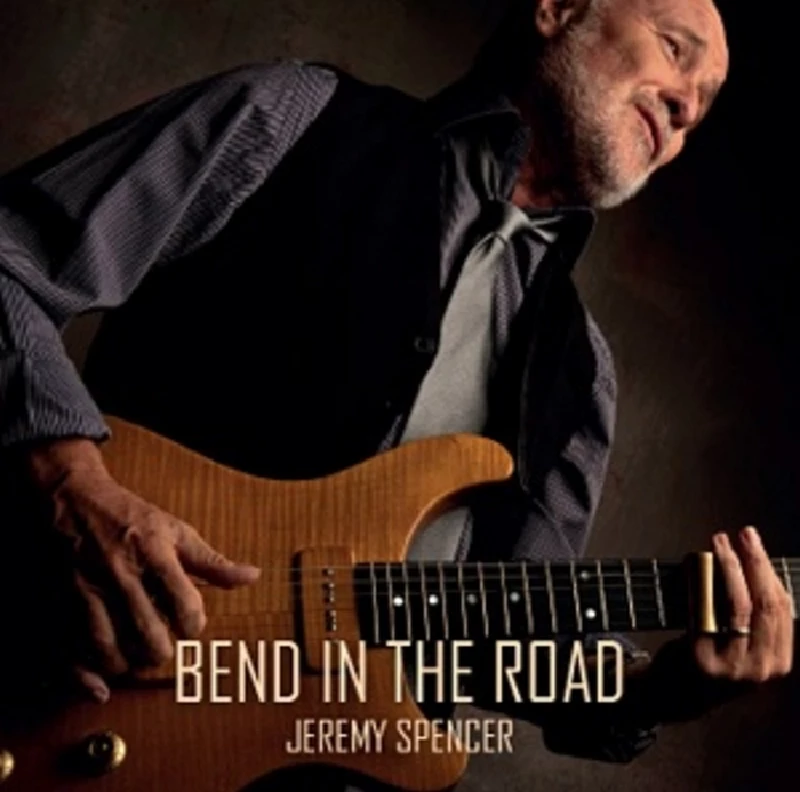
reviews |
|
Bend in the Road (2012) |
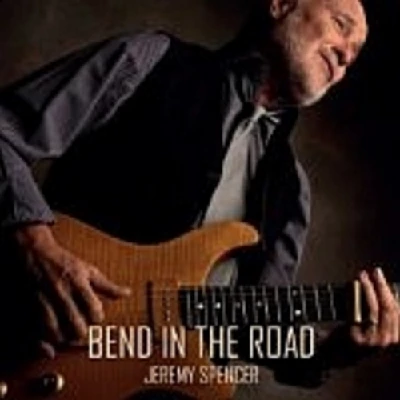
|
| Evocative collection of covers and original songs on tremendous latest solo album from British blues guitarist anf former Fleetwood Mac member, Jeremy Spencer |
most viewed articles
current edition
Peter Doherty - Blackheath Halls, Blackheath and Palace Halls, Watford, 18/3/2025 and 21/3/2025Armory Show - Interview with Richard Jobson
Liz Mitchell - Interview
Deb Googe and Cara Tivey - Interview
Lauren Mayberry - Photoscapes
Max Bianco and the BlueHearts - Troubadour, London, 29/3/2025
Garfunkel and Garfunkel Jr. - Interview
Maarten Schiethart - Vinyl Stories
Clive Langer - Interview
Sukie Smith - Interview
previous editions
Heavenly - P.U.N.K. Girl EPBoomtown Rats - Ten Songs That Made Me Love....
Trudie Myerscough-Harris - Interview
Doris Brendel - Interview
Beautiful South - Ten Songs That Made Me Love...
Kay Russell - Interview with Kay Russell
Dwina Gibb - Interview
Pulp - Ten Songs That Made Me Love...
Barrie Barlow - Interview
Sound - Interview with Bi Marshall Part 1
most viewed reviews
current edition
Davey Woodward - Mumbo in the JumboNigel Stonier - Wolf Notes
Wings - Venus and Mars
Only Child - Holy Ghosts
Kate Daisy Grant and Nick Pynn - Songs For The Trees
Neil Campbell - The Turnaround
Philip Jeays - Victoria
Darkness - Dreams On Toast
Suzanne Vega - Flying With Angels
Charles Ellsworth - Cosmic Cannon Fodder
Pennyblackmusic Regular Contributors
Adrian Janes
Amanda J. Window
Andrew Twambley
Anthony Dhanendran
Benjamin Howarth
Cila Warncke
Daniel Cressey
Darren Aston
Dastardly
Dave Goodwin
Denzil Watson
Dominic B. Simpson
Eoghan Lyng
Fiona Hutchings
Harry Sherriff
Helen Tipping
Jamie Rowland
John Clarkson
Julie Cruickshank
Kimberly Bright
Lisa Torem
Maarten Schiethart